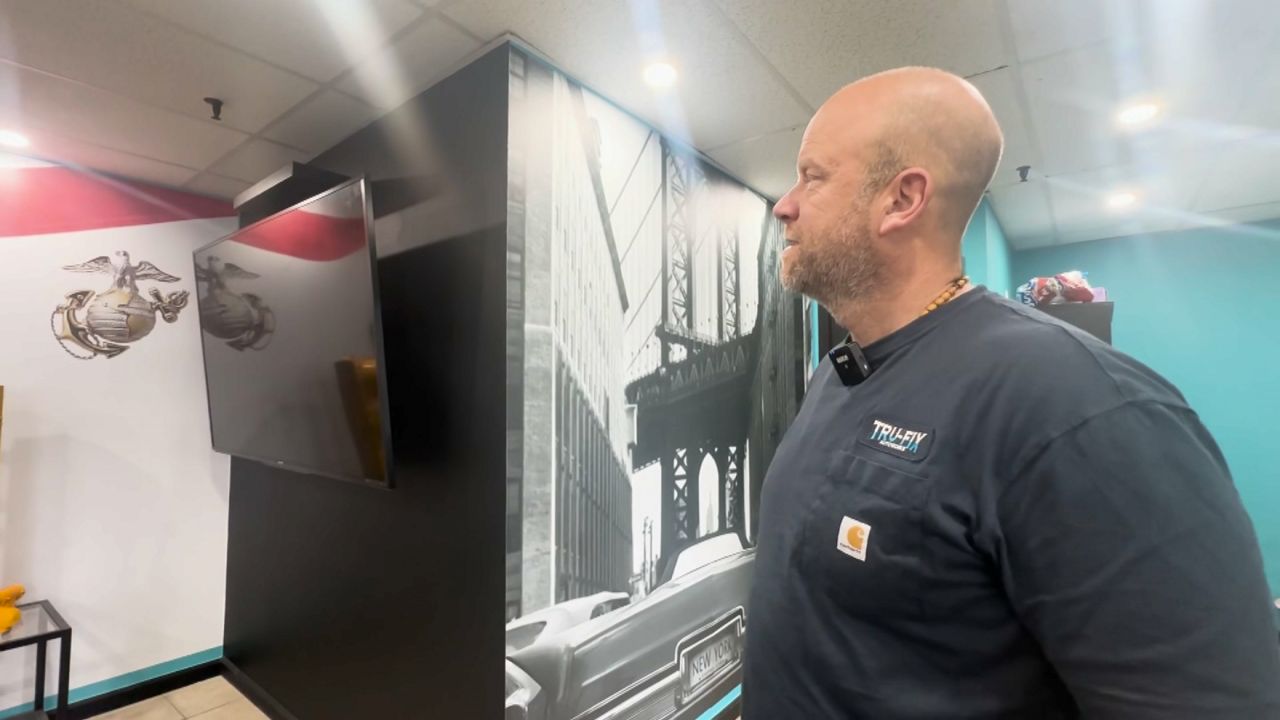As Veterans Day approaches, attention is turning to the challenges facing New York City’s veteran population — especially when it comes to mental health.
According to the U.S. Department of Veterans Affairs, more than 1.7 million veterans received treatment in a VA mental health specialty program last year.
One of them, Queens native and former Marine Bill Vallely, said seeking help changed his life.
What You Need To Know
More than 1.7 million veterans receive mental health treatment through the Department of Veterans Affairs each year
Veterans Rebuilding Life, a Queens-based nonprofit, helps veterans address mental health by tackling housing, employment and community needs
The number of homeless veterans in New York City dropped by 90% between 2011 and 2022
Despite progress, 17 veterans nationwide still die by suicide each day
“Rehashing memories that I kind of buried. I never knew that I buried them until I actually had to talk about them,” Vallely said.
After serving two tours in Iraq, Vallely said he struggled with anxiety and post-traumatic stress disorder. For years, he avoided applying for government benefits or working with nonprofits, believing others needed help more.
That changed when a fellow Marine — who had founded the nonprofit Veterans Rebuilding Life — convinced him to seek support.
“Ever since then, I have been very vocal about talking about your experiences, accept the things you brought home and let it drive you,” Vallely said.
An evaluation of the Department of Veterans Affairs Mental Health Services found that 41% of veterans who served in Iraq and Afghanistan needed some kind of mental health service. The study also found untreated conditions like PTSD, anxiety and depression put veterans at greater risk for unemployment and homelessness.
Dr. Mayer Bellehsen, founding director of the Center for Traumatic Stress, Resilience and Recovery at Northwell Health, echoed the findings, saying untreated mental health issues impact multiple aspects of veterans’ lives.
“It can impact your employment, which then puts you at greater risk for financial troubles and potentially even being unhoused, which in turn then exacerbates the mental health conditions,” Bellehsen said.
However, there are signs of improvement. As of August 2025, the unemployment rate among veterans was about 3.1%, slightly lower than last year.
Homelessness among veterans has also declined. Across the U.S., more than 32,000 veterans were homeless on a single night — a nearly 8% decrease from the previous year. New York City led the way in reducing homelessness among veterans in New York state, cutting its total by 90% between 2011 and 2022 — from more than 4,000 to fewer than 500.
Federal funding for VA programs addressing homelessness has also grown more than 600% over the last 16 years, according to federal data.
Bellehsen said the VA has made advances in their level of mental health support for veterans as well.
“The VA has also tried to expand, to deploy and to utilize community care, so that helps. But even among our community providers, there isn’t always enough cultural competency in how to treat veterans or even access services,” he said.
Veterans Rebuilding Life, the organization that helped Vallely, works to address mental health challenges by focusing on addressing any instability in the lives of veterans, including housing, employment and community connection. The group believes, when not resolved, these factors heavily contribute to the statistic of 17 veteran suicides each day.
Volunteer Damia December said restoring purpose is a key part of recovery.
“We have community service as that final step for our program,” December said. “It’s not enough to say you have everything taken care of for you. You also are missing that purpose, that drive of what makes life worth living.”
Vallely completed Veterans Rebuilding Life’s three-phase program within a year and now receives mental health care through both the VA and private providers. The experience inspired him to start several businesses and to give back.
He now volunteers with the same nonprofit that helped him, connecting fellow veterans with jobs and mental health resources.
“Maybe if I can save one veteran from horribly committing suicide, that’s what’s worth it — my life’s mission,” Vallely said.

